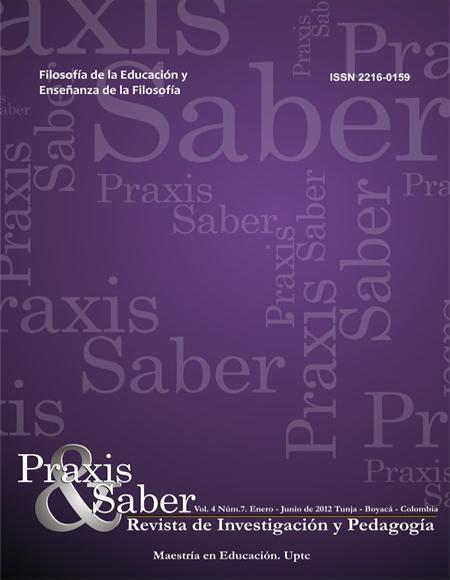Reflections on teaching the humanities at university

Abstract
Abstract This paper presents the reflection on the sense of Humanities teaching and learning process at XXI century university. The reflection starts from the innovative experience of Museo Comunitario (Community Museum) as a strategy of intervention and research, implemented in a private university in Tunja City. First of all, it is presented an introduction that puts the reader into the context of questioning the Humanities and their crisis from the educative field. In the second part of the paper, the self-referential exercise of the Humanities teaching in higher education is gathered. Later, the text focuses on the uprising of the crisis of the Humanities and how it must be recognized from the educative field. Right after, it is showed, as a way of systematizing the experience, the Museo Comunitario as a didactic strategy that enables a social constructive environment going beyond the walls of the classroom. The text ends with some results and conclusions of the reflection in general and of the implementation of the didactic strategy.Keywords
Education, the Humanities, didactics, crisis, Community Museum.
Author Biography
Cristina Fuentes Mejía
Estudiante de Maestría en Educación, Universidad Pedagógica y Tecnológica de Colombia
Docente UPTC, Escuela de Filosofía y Humanidades
References
- Álvarez, P. (2009). ‘Espacios educativos y museos de pedagogía, enseñanza y educación’. Revista Cuestiones Pedagógicas, Nº 19, 2008/2009, (pp. 191 – 206). España: Universidad de Sevilla.
- Bauman, Z. (2003). Amor líquido. Acerca de la fragilidad de los vínculos humanos. Buenos Aires: Fondo de cultura económica.
- Brovelli, M. (2001). Evaluación curricular: Fundamentos en Humanidades. Año 2, Nº 4, (pp. 101-122). Argentina: Universidad Nacional de San Luis.
- Derrida, J. (2002). Universidad sin condición. Traducción de Cristina de Peretti y Paco Vidarte. Madrid: Editorial Trotta S.A.
- Fuentes, C. (2012). La crisis como realidad esencial de las humanidades: un desafío para la filosofía de la educación. Ponencia presentada en el VI Coloquio Internacional de Filosofía de la Educación. Filosofar: Aprender y Enseñar. Río de Janeiro.
- Langon, M. (2012). Educación Filosófica en Tiempos de Crisis y Globalización. Conferencia Inaugural del IX Encuentro de profesores que enseñan filosofía. Universidad Pedagógica y Tecnológica de Colombia. Montevideo, Uruguay: Centro de Estudios Multidisciplinares.
- Marcuse, H. (1983). Eros y Civilización. Madrid: Sarpe S.A
- Meirieu, P. (1992). Aprender sí, pero ¿cómo? Barcelona: Octaedro.
- Mejía, M. (2012). Educaciones y pedagogías críticas desde el sur. Cartografías de la Educación popular. Bogotá: Magisterio Editorial.
- Morales, T. & Camarena, C. (2009). Manual para la creación y desarrollo de museos comunitarios. Fortaleciendo lo propio. La Paz, Bolivia: Fundación Interamericana de Cultura y Desarrollo. Recuperado de www.museocomunitario.org.
- Nussbaum, M. (2005). El cultivo de la humanidad. Una defensa clásica de la reforma en la educación liberal. Barcelona: Paidós.
- —— (2010). Sin fines de lucro. Por qué la democracia necesita de las humanidades. Buenos Aires: Katz editores.
Downloads
Download data is not yet available.